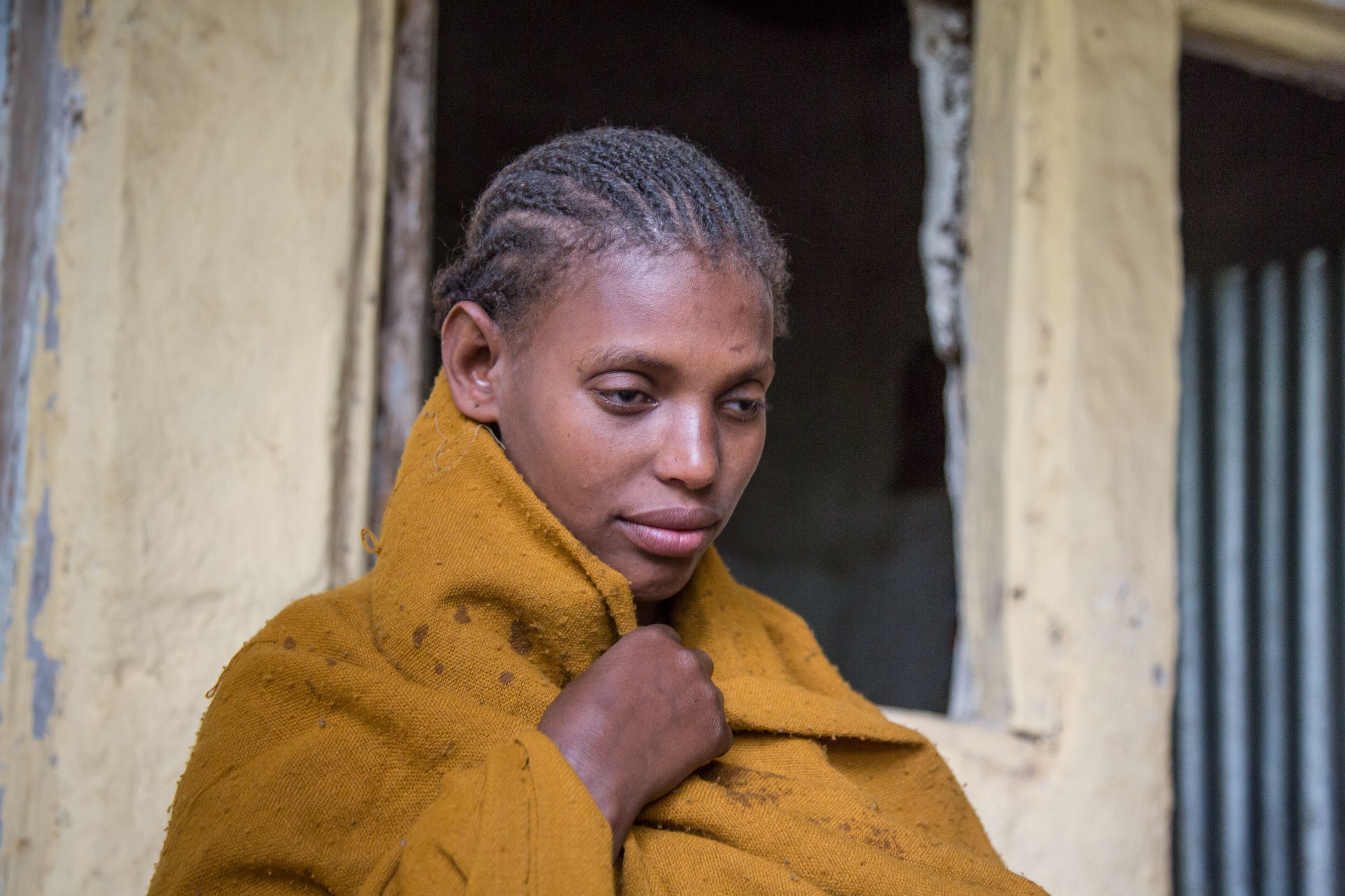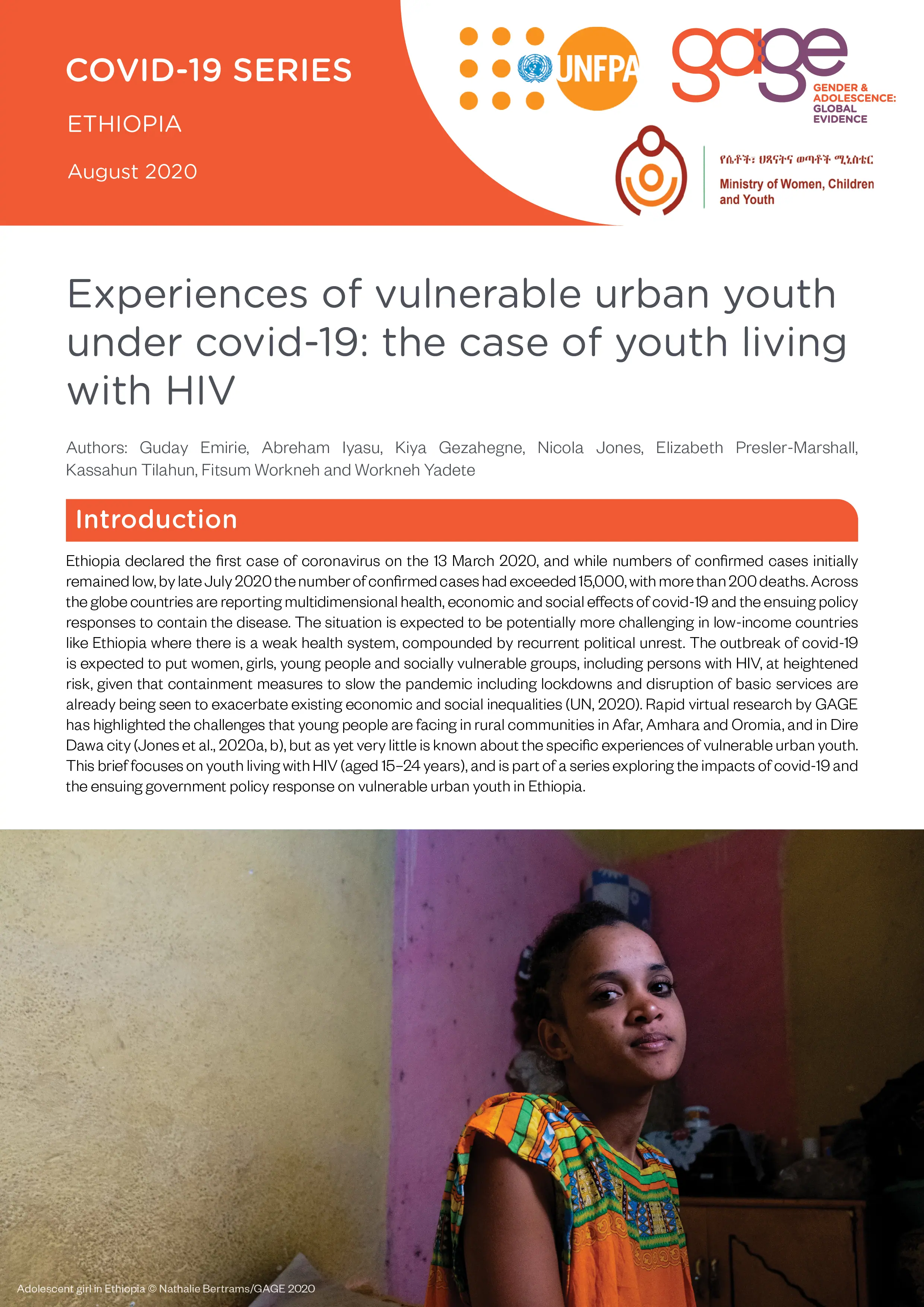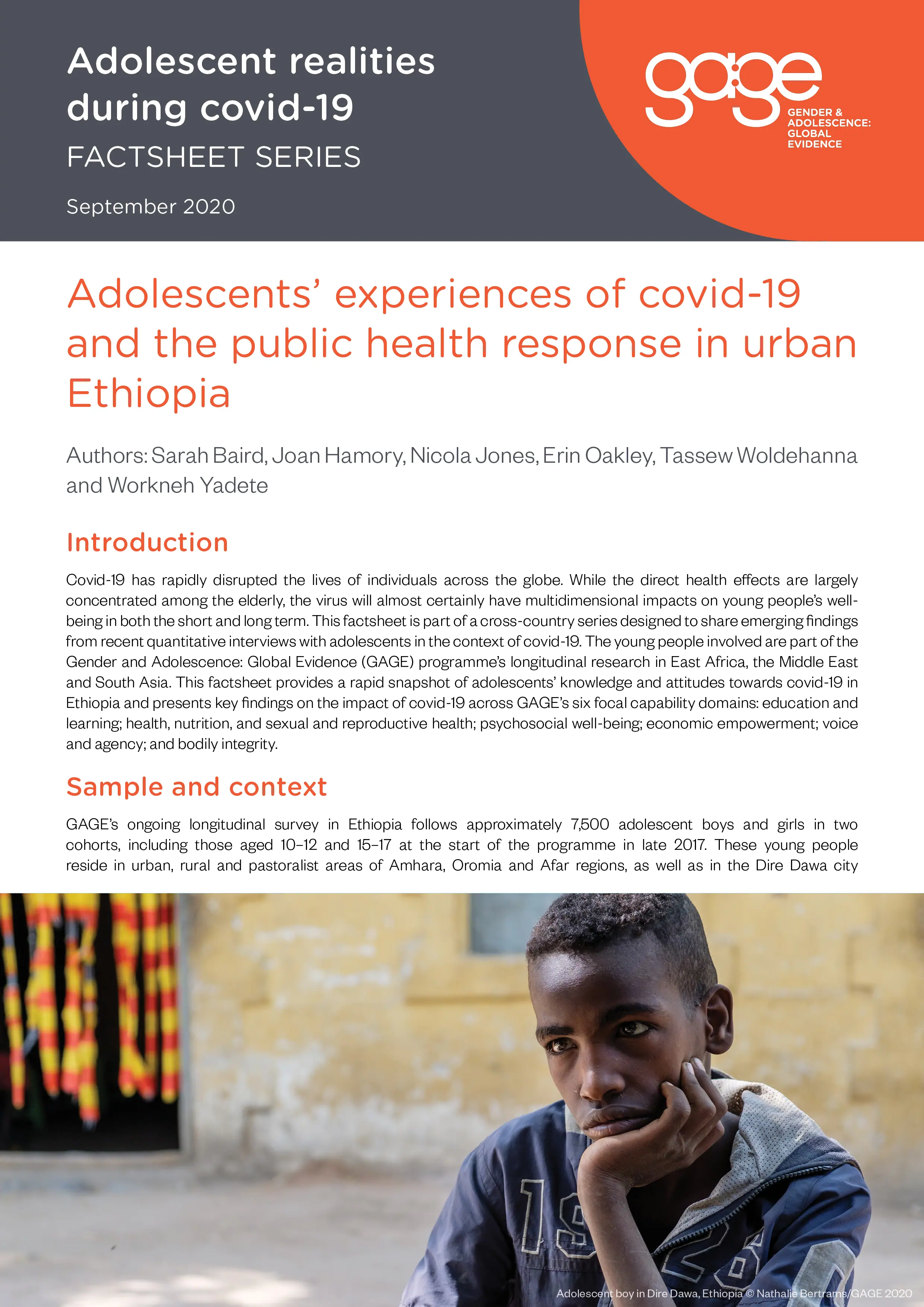
Experiences of vulnerable urban youth under covid-19: the case of youth with disabilities
publication
Experiences of vulnerable urban youth under covid-19: the case of youth with disabilities
09.08.2020 | Ethiopia
Country
Ethiopia
Capability domains
Health, Nutrition and Sexual and Reproductive Health (SRH)
Audience type
Policy maker or donor, Programme designer or implementer
Year of publication
2020
Authors
Guday Emirie, Abreham Iyasu, Kiya Gezahegne, Nicola Jones, Elizabeth Presler-Marshall, Kassahun Tilahun, Fitsum Workneh and Workneh Yadete
Ethiopia declared the first case of coronavirus on the 13 March 2020, and while numbers of confirmed cases initially remained low, by late July 2020 the number of confirmed cases had exceeded 15,000, with over 200 deaths.Across the globe, countries are reporting multidimensional health, economic and social effects of covid-19 and the ensuing policy responses to contain the disease. The situation is expected to be potentially more challenging in low-income countries like Ethiopia where there is a weak health system, compounded by recurrent political unrest. The outbreak of covid-19 is expected to put women, girls, young people and socially vulnerable groups, including persons with disabilities, at heightened risk, given that containment measures to slow the pandemic including lockdowns and disruption of basic services are already being seen to exacerbate existing economic and social inequalities. Indeed, persons with disabilities are more likely to experience adverse socio-economic outcomes than persons without disabilities due to ‘less education, poorer health outcomes, lower levels of employment and higher poverty rates’. Rapid virtual research by GAGE has highlighted the challenges that young people are facing in rural communities in Afar, Amhara and Oromia, and in Dire Dawa city, but as yet very little is known about the specific experiences of vulnerable urban youth. This brief focuses on youth (aged 15–24 years) with physical and visual disabilities, and is part of a series exploring the impacts of covid-19 and the ensuing government policy response on vulnerable urban youth in Ethiopia.
Suggested citation
Emirie, G., Iyasu, A., Gezahegne, K., Jones, N., Presler-Marshall, E., Tilahun, K., Workneh, F. and Yadete, W. (2020) ‘Experiences of vulnerable urban youth under covid-19: the case of youth with disabilities.’ Policy brief. London: Gender and Adolescence: Global Evidence. (https://www.gage.odi.org/publication/experiences-of-vulnerable-urban-youth-under-covid-19-the-case-of-youth-with-disabilities/)


